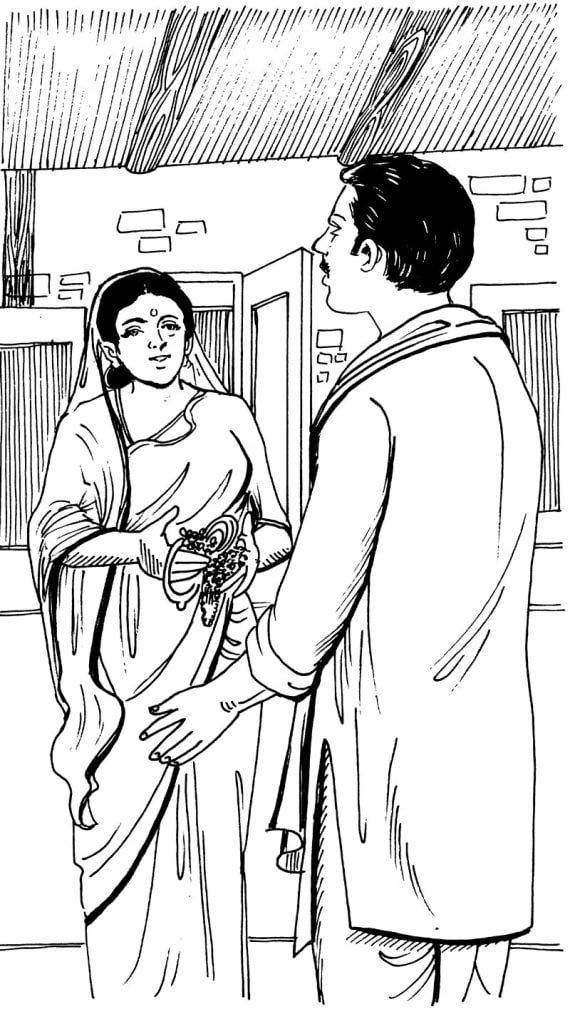Gopal Krishna was married to a girl when he was only 15 year old even before he could pass the matriculation examination in 1880. As already mentioned child marriage was a social custom accepted and practised by almost all. The people were yet to learn to question the propriety of the custom. The social reformists were still bogged down in battles against widow burning, widowhood, untouchability etc. The young people meekly allowed themselves to get herded into the marriages taking it their duty to obey the wishes of the elders.
The marriage did not bring happiness to the life of Gopal. His young wife contracted or developed leprosy disease. She looked a picture of sickening misery. The family proposed second marriage. Gopal Krishna hesitated. To him it looked gross injustice to his legally married ailing wife.
He passed ‘Entrance’ examination much before the due time. He was travelling fast on the education highway. The doors for the higher education were open to him.
But he was very reluctant about going ahead. He knew the hardships his brother and the family were going through for his sake. Although it was for a noble cause and to realise the dream of the family yet it bit his conscience. A guilty feeling set in his mind that he was the parasite on the family.
So, he proposed to his brother that he would do some minor job to lessen his burden instead of educating himself at the family’s cost. But Govind and his wife were adamant that he continue his studies without troubling his mind about the problems of the family.
Infact his sister-in-law, Govind’s wife took off all her ornaments and jewellery and put them beforeGopal saying that he could sell them to finance his education.

Now Gopal Krishna realised how genuine the wish of his brother and his wife was for his education. His education was their own dream as well.
He respectfully bowed his head to his sister-in-law and promised that he would not disappoint them.
In January, 1882 he took admission in the Rajaram College of Kolhapur. Gopal was a diffident person but his brain was sharp and fast learner. His memory power was exceptional.
He would often give a text book to one of his classfellows and refer to a chapter which he would recite from his memory and if the classfellows detected any digression from the text Gopal was to pay a monetary penalty which was one anna per mistake. No classfellow ever earned penalty from him.
Although he was not keen on learning English earlier yet now he realised that it was the language of the higher and modern education. So, there was no escape from learning it if really wanted to become good enough to realise the dream of the father. And he began to learn English in earnest.
He put his memory power to good use and surprised everyone by learning by heart several English text books.
After Rajaram College Gopal Krishna joined Deccan College for higher studies. For the final year finishing examination he appeared in Elphinston College of Bombay and passed it with flying colours.
Coincidentally, another great Indian Dr. Bheemrao Ambedkar was also product of that Bombay College.
It was great fortune of Gopal Krishna that
Mr. Wordsworth was the English professor in Elphinston College, who was the grandson of the famous poet William Wordsworth. He inspired Gopal Krishna to study the English literature classics in the text and verse forms.
Gopal Krishna had developed unusual proficiency in English language. He could easily articulate the complex feelings and matters. It made him a great orator and the parliamentary material.
The mathematics professor Mr. Hothornweight also influenced Gopal Krishna. Both of the professors helped Gokhale win a scholarship of Rs. 20 per month. That financially eased out problems of Gokhale who was more of a drain on the financial resources of his poor brother.
